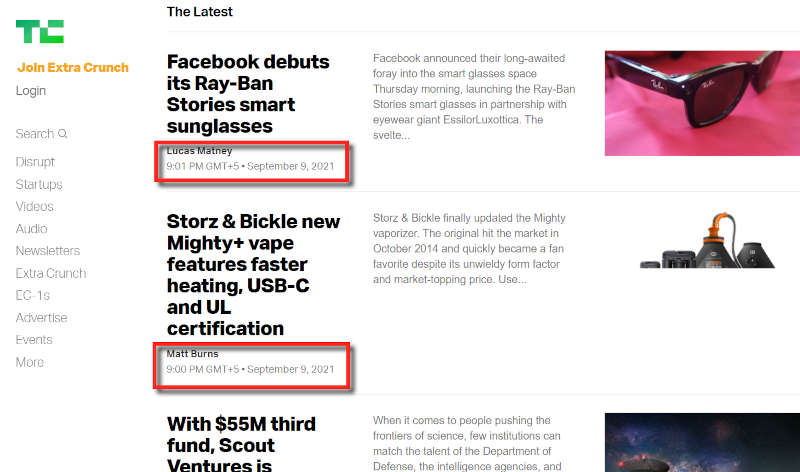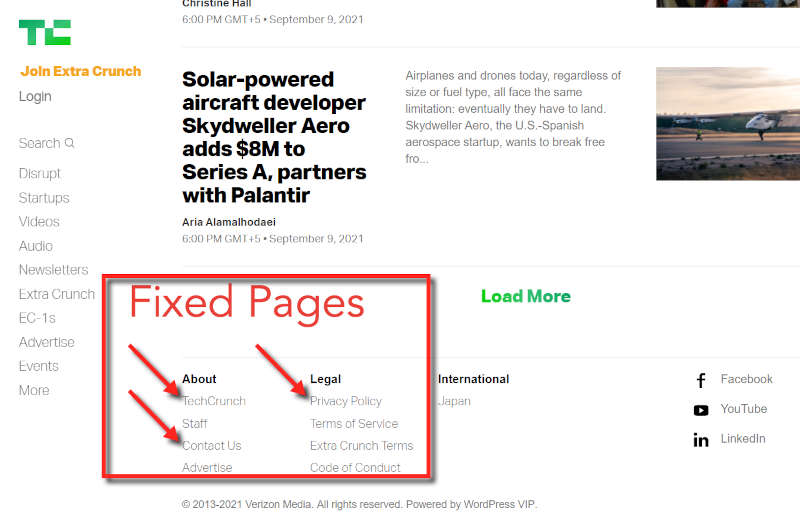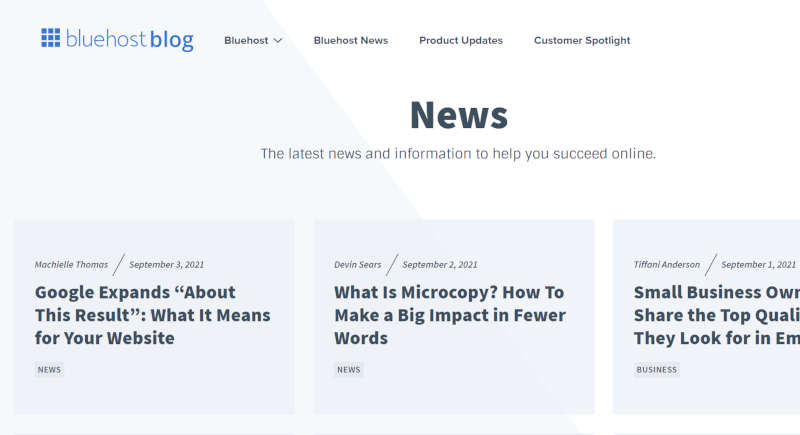What is a blog? If I search this term on Google, most probably the response to this query on my screen would be the links of websites that are primarily blogs displaying relevant articles on this particular topic.
So it’s one way of landing on a bunch of websites that we call blogs.
But if you want to start a blog as a part of a hobby or earn money from it, it’s essential to know the real difference between a blog and a typical website.
In this article, I have explained all the related things about what a blog is and how it works, and how you can earn money from blogging?
By the way, as a side note, if you regularly post on Facebook, Twitter, Instagram, or any of the similar social websites or apps, you are already into blogging, and the question ‘what is a blog’ becomes so easy to understand now.
What is a blog?
A blog is a website that publishes content (text, pictures, videos) of any type and on any topic on a regular basis and displays in some order.
Technically speaking, a blog has to arrange information (articles, news, reports) in chronological order, with the latest events appearing on the top.

It is usually a dynamic website where content keeps getting published. It could be an article a day, a few pieces a week, or maybe an article a month. The timeline could be anything depending upon the convenience of the writer and publisher, aka ‘blogger’.
Right now, you are reading this article on my blog, WhatBlogging. In the blogging world, we refer to this article as a ‘post’.
And a blog post needs to have a publishing date; there may be a few links in this post connecting to other articles/posts. And this post is also linked to my homepage in a particular order.
A blog usually has a comment section under each article (post) for the readers to interact with the author to discuss and inquire about anything related to the topic in question.
Difference between a blog post and a web page?
Besides the blog posts discussed above, a blog also displays some static pages carrying information that remains primarily unchanged, which is why it is published differently. These are static pages such as ‘contact us’, ‘about us’, a ‘policy or disclosure’, etc. They are typically called web pages.

What is Blogging, and who is a Blogger?
The act of writing articles and publishing them on a website, in fact, the whole exercise of running a blog, is commonly known as blogging.
The person who owns the blog runs it and does everything is referred to as a blogger.
A blogger can be an individual, or a group of bloggers can work together and run a blog.
History of Blogging
Give me a few moments; let’s go back in time and find a ubiquitous example.
Most of us’ humans’ like to make a log of everything around us and about us. Today it happens on a wide variety of digital platforms using text, images, and videos.
Earlier it happened by putting your thoughts and opinions on paper. Some did it privately for keeping things to themselves that ended up documenting every expression into a diary.
Some did it every day, and some had this habit of logging everything weekly. Whatever the routine was, it happened regularly.
The more vocal writers and enthusiasts ended up sharing their thoughts with the world through newspapers, magazines, and journals.
The first newspaper, as recognized commonly, was published in Germany in 1605. Keeping aside the number of pages in it and the fact that there were no means of distribution in the early days, the paper’s owner would write, print, and distribute it himself.
By modern definition, you can call it writing, publishing, and marketing the content.
So is a newspaper a blog?
Umm, not in its entirety, but yes, we can call it for our understanding.
Fast forward to the 1990s, and here comes the digital world. Today’s ‘diary’ is called a personal blog that can carry all your thoughts, life stories, opinion about the political world, or whatever you want to write about.
The first reported blog is credited to Swarthmore College’s student Justin Hall who created his online page in 1994 for writing about his personal activities. It was a single page.
In 1997, Jorn Barger started logging the scattered information on the web and called it “weblog”. Later in 1999, the term weblog got truncated to just “blog” as we know it today.
The difference between a blog and a website, are both the same?
As a general rule, Yes, a blog has to be a website; however, a website isn’t necessarily a blog.
So with the perspective of a blog and website, we can divide them into three scenarios.
Case 1: A blog is a blog
A blog is a collection of posts uploaded regularly and gets displayed in chronological order, the latest being the first.
Case 2: A typical website
On the other hand, a typical website is a collection of few static web pages that mostly talk about the company’s overall structure, including its product, services, and management. And you will also find about us and contact us pages on the site.
Information on such websites doesn’t change in months or sometimes years and only serves as a window to the company, a mere digital presence.
Apple has a website that features its products and services. It allows their customers to interact with them through a buying section where new and refurbished products are available.
Case 3: A site cum blog
Some companies also integrate a blog section into the website.
Why do they do it? Because a blog is usually more search engine friendly, ranking it on the search engine is easier than a static web page, which allows companies to reach a wider audience with the help of a blog that talks about their products and services.
What if Apple integrates a blog section on its site for updating readers about their new products, their possible explanation about the technology on their phones and macs. Well, it could be our wish, but a more relevant example is Bluehost people, who manage a news section on their primary site, which is all about hosting businesses and solutions. But their blog segment comes in handy with lots of discussion on several topics.

There are several such examples. A homemade soap business can create a blog on its e-commerce site to update its possible clients about the benefits of organic soaps and what people should do to take care of their skins.
Now you have a clear picture of a blog, a website, and its overall structure. Now is the time we can talk about how you can make money from your blog?
Example of a blog
A few of the most famous blogs today are Huffington Post, Engadget, CopyBlogger attracting millions of loyal audiences every day on their platforms where people land to find a wide variety of posts on a plethora of topics.
Of course, each of the above blogs makes an insane amount of money which is possible due to hundreds of people working behind the scene. The bloggers behind these platforms spent countless days and nights eating, drinking, and sleeping as a blogger.
As per estimates, over 600 million blogs are running on the internet on various topics such as sports, politics, fashion, books, digital marketing, etc. Some of them are run by individuals and some by a group of people.
How to make money from blogging?
Top bloggers of the world earn millions of dollars every month from their blogs. The revenue streams for each blog is different depending upon several factors such as;
- Content creation strategy
- The type of content
- The popularity of a blog and the loyalty of the audience
- Uniqueness, ideas, and several other factors.
But there is one common aspect. They all started from point zero, where most of the starters are standing right now.
I would say there is no limit, but in general, we divide the revenue stream into three major categories.
- Paid advertisements/Google AdSense
- Affiliate marketing
- Selling own product/service
1- Paid advertisements/Google AdSense
For new bloggers who don’t have an audience yet and are in the early days of their blogging, pursuing a company for a paid banner isn’t a way to go yet. Here comes the Google AdSense that can run ads on your blog on behalf of different brands and give you commission from their earning.
2- Affiliate Marketing
You can link to products and services of different brands within your articles and even put a banner ad in your sidebar or wherever you want. If your audience clicks on the link and buys something from the landing page, you will commission the sale.
3- Selling your own product
Building trust is critical for revenue streams two and three. It might not look a feasible idea for a new blog, but down the road, with a thriving audience, a blogger can start selling their own product and service.
Can I start a blog?
Yes, anyone can start a blog. The good thing is, you don’t need to be an expert in a computer language. Earlier, bloggers were required to know HTML and PHP skills for creating and publishing content.
Today, you only need to know about the purpose of your blog, what topics you want to write on, and the rest of the things are taken care of automatically with the help of well-developed CMS like WordPress.
If you want to start safely without spending a dollar, go to websites such as WordPress.com and Bloggers.com and create an account. Your blog will be ready in a few minutes.
If you want to start more professionally, you need a domain name and a web host to kick start your first blog. We have step by step guide on how to start a blog on WordPress.
And if you to get our help, we can do it without charges. 🙂
